Introduction
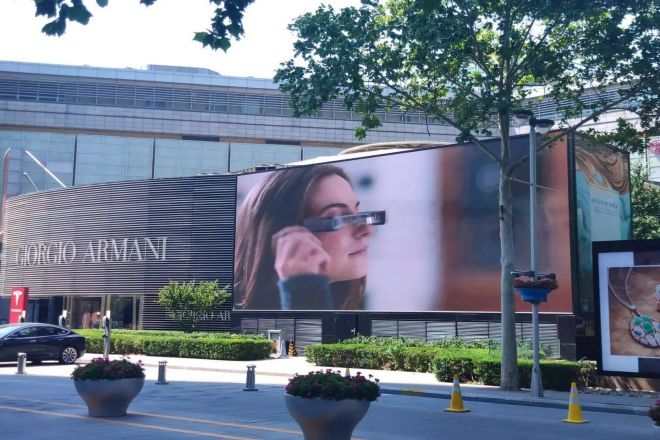
On busy urban streets, various LED displays attract people’s attention with their unique charm.
These displays are installed in different ways, whether suspended, column-mounted, or embedded, bringing us a rich and colorful visual experience. Today, we will first take a closer look at one of them – the inlaid-mounted LED display.
1. What is an inlaid LED display?
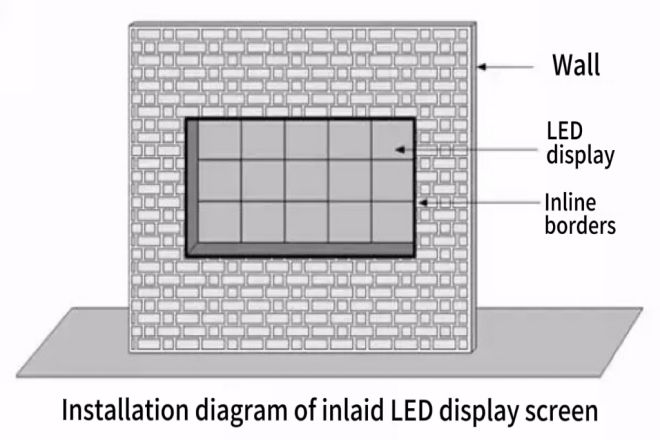
The inlaid LED display screen is like a beautiful painting, cleverly embedded in a wall or other structure and perfectly integrated with the surrounding environment. It is like an invisible magic mirror, presenting information, images, videos, and other content in front of the audience in a dazzling way without breaking the continuity and integrity of the space.
You can imagine that when you walk into a shopping mall or office building, the LED displays embedded on the wall are like pieces of luminous gems, shining with charming light. They blend in with the surrounding décor and architecture as if they were part of the wall rather than an obtrusive addition.
These displays not only bring you a rich visual experience but also enhance the quality and atmosphere of the entire space.
At the same time, the inlaid LED display screen is like an efficient transmitter of information. They can display various contents as smoothly as flowing water, whether it is commercial advertisements, news reports, or public information, and can be conveyed to the audience quickly and accurately.
The flexibility of these displays is also amazing. They can adjust the display content and format as needed to meet the needs of various occasions.
2. What are the advantages of inlaid LED displays?
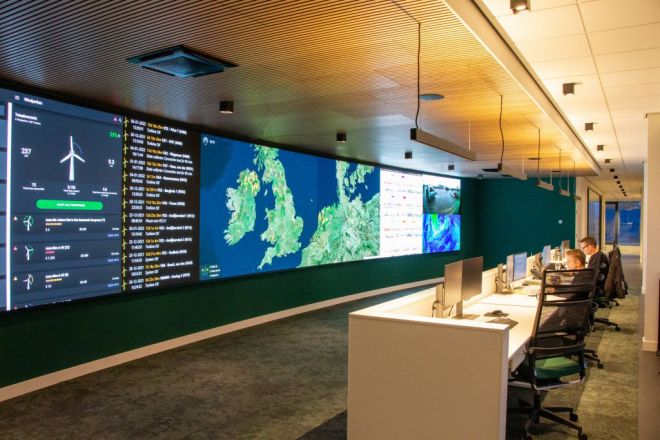
1). Excellent aesthetics and integration:
Aesthetics: The design of the inlaid LED display is exquisite and can be perfectly integrated with the surrounding walls, glass, or other materials to form an integrated visual effect. This seamless design makes the display no longer an obtrusive add-on but becomes part of the space, improving the overall aesthetics.
Integration: Due to its embedded design, the inlaid LED display can match various architectural styles and decorative styles. Whether it is modern and simple or classical and gorgeous, you can find a suitable display solution. This flexibility allows it to be widely used in a variety of locations.
2). Efficient space utilization:
Save floor space: Traditional display screens usually need to occupy a certain amount of floor area, while inlaid LED displays can free up this part of the space, especially suitable for places with limited space or where land is at a premium.
Utilize wall space: By embedding the display screen into the wall, you can make full use of the wall space, which not only increases the area for information display but also avoids taking up too much floor space.
3). Excellent viewing experience:
Reduce light interference: Since the display screen is embedded in the wall or structure, external light has less impact on it, thereby reducing light interference and improving viewing clarity and comfort.
Wide viewing angle: High-quality inlaid LED displays usually have a large viewing angle, so viewers can clearly see the display content no matter what angle they stand, enhancing the viewing experience.
4). Convenient maintenance and installation:
Easy maintenance: Many inlaid LED displays adopt a modular design, which means that when a certain part fails, the module can be replaced or repaired individually without replacing the entire display, greatly reducing maintenance costs and time.
Flexible installation: While the initial installation process may be complex, once completed, the display’s position and angle can be fine-tuned as needed to accommodate different viewing needs.
5). High stability and durability:
Earthquake resistance: Because the display is embedded inside the structure, it is less affected by external vibrations and, therefore, can remain relatively stable when natural disasters such as earthquakes occur.
Durability: High-quality display materials and advanced production processes give the inlaid LED display a long service life and can operate stably in various harsh environments.
6). A broad range of applications:
Commercial applications: Commercial places such as shopping malls, hotels, and office buildings can use inlaid LED displays for advertising, information release, and brand image display.
Public places: Airports, stations, hospitals, and other public places can provide real-time information, announcements, and guidance through display screens to facilitate public travel and life.
Home entertainment: In the home environment, inlaid LED displays can supplement entertainment equipment such as TV walls and home theaters, providing a richer and more shocking audio-visual experience.
3. Is the inlaid LED display suitable for indoor or outdoor use?
The inlaid LED display screen is suitable for both indoor and outdoor use, but it needs to be customized according to the specific application scenario and installation environment.
In indoor environments, inlaid LED displays are usually used in smaller areas, such as shopping mall interiors, hotel lobbies, office building corridors, etc. Due to limited installation space, embedding the display into the wall can save space while perfectly integrating with the surrounding environment and improving the overall aesthetics.
In addition, the indoor environment is relatively stable, and the requirements for display screens are relatively low, so inlaid LED displays have high flexibility and adaptability in indoor applications.
In outdoor environments, inlaid LED displays need to consider more factors, such as waterproofing, dustproof, sun protection, wind resistance, etc. In order to ensure that the display screen can work stably in harsh outdoor environments, it is usually necessary to strengthen the waterproof and heat dissipation functions during design and use more durable materials and processes.
In addition, light interference in outdoor environments is large, so parameters such as the brightness and contrast of the display also need to be considered to ensure that the audience can clearly see the display content.
4. What are the installation requirements for inlaid LED displays?
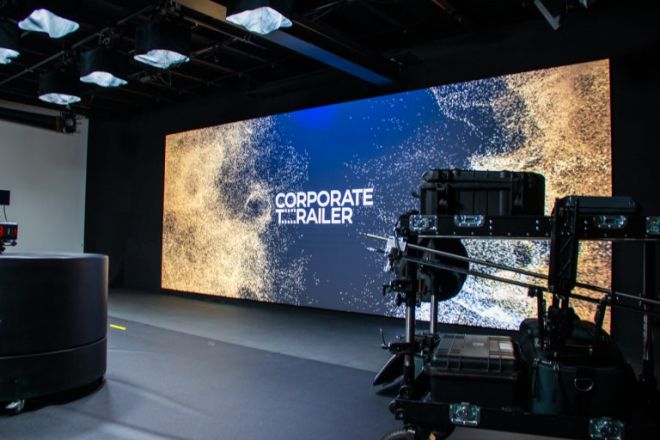
First of all, the installation location, wall condition, installation method, and stress conditions need to be carefully confirmed. The specific dimensions of the display should also be taken into consideration to ensure that there are no obstructions at the installation site that would impede the installation of the display.
In addition, power requirements are also very important. The installation location should have a stable power supply and comply with relevant electrical safety standards to ensure the normal operation of the equipment and the safety of the audience.
Secondly, environmental requirements cannot be ignored. LED display equipment should be installed in a dry, well-ventilated environment to avoid being affected by adverse factors such as moisture or high temperature. At the same time, the lighting conditions of the surrounding environment must be taken into consideration to avoid the impact of excessive light on the screen.
Furthermore, maintenance requirements are also a critical aspect. The installation location should be convenient for maintenance personnel to carry out daily inspections and maintenance work to ensure long-term stable operation of the equipment.
Specifically, you need to select appropriate brackets and fixtures based on the size and weight of the LED display and assemble and fix them according to the installation instructions provided by the manufacturer. Brackets and mounts must be stable, flat, and meet safety standards.
Finally, security requirements cannot be ignored. The installation of LED display equipment should comply with relevant safety standards to avoid potential safety hazards to the surrounding environment and personnel.
5. How much does it cost to install an inlaid LED display?
The installation cost of inlaid LED displays varies depending on many factors, and it is difficult to give a specific number. Its installation costs mainly include the following aspects:
The price of the display itself:
The price of an LED display will vary based on its size, resolution, brightness, color, and other characteristics. Generally speaking, the price of a display with a larger size and higher performance will increase accordingly.
Customization and installation costs:
Since the inlaid LED display needs to be customized according to the specific installation environment and requirements, additional design and customization costs may be involved. At the same time, professional construction teams and equipment may be required during the installation process, which will also increase installation costs.
- Cost of auxiliary equipment and materials:
Including the cost of auxiliary equipment and materials such as brackets, fixing frames, connecting wires, and power supplies. The quality and quantity of these equipment and materials will also affect installation costs.
Other costs, such as transportation fees, taxes, labor fees, etc., are also part of the installation cost.
Therefore, to determine the installation cost of an inlaid LED display, it is necessary to comprehensively consider the above factors and conduct detailed calculations and quotations based on specific circumstances.
It is recommended that when choosing installation services, you should conduct detailed consultation and communication with a professional LED display supplier or installation company to ensure an accurate quotation and high-quality service.
Please note that while specific installation cost figures cannot be given, in general, installation costs can vary significantly depending on the size, performance, and quality requirements of the display. Therefore, various factors should be fully considered when budgeting and planning to ensure the smooth progress of the project.
6. What are the maintenance precautions for inlaid LED displays?
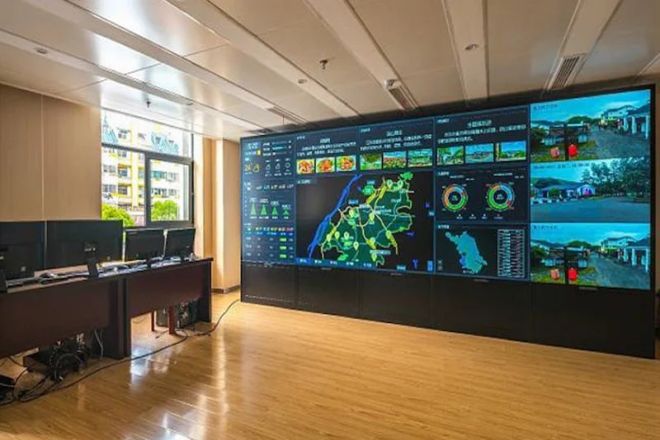
First, regular inspections are essential. This includes checking whether the various parts of the display are working properly, such as whether the power cord is loose, whether there are damaged wires, etc.
At the same time, you also need to check whether the brightness and color of the display are normal and whether there are blackening, flickering, etc. These checks can detect potential problems in time before they affect the normal operation of the display.
Secondly, cleaning is equally important. Use a soft cotton cloth dipped in detergent to gently wipe the display surface. Be careful not to use excessive force to prevent damage to the LED lamp beads or screen. At the same time, the liquid should not enter the display to prevent short circuits or other failures.
During the cleaning process, be especially careful not to use chemical solvents or rough cleaning tools to avoid damaging the display surface.
In addition, protection work cannot be ignored. Pay attention to prevent rain and moisture from entering the inside of the display screen, and you can take waterproof measures, such as installing a waterproof cover and adding waterproof tape. This can effectively prevent circuit short circuits or other failures caused by moisture.
Additionally, professional maintenance is key. Professionals should maintain LED displays. Non-professionals may not have relevant knowledge and skills, which may easily lead to equipment damage or safety issues. Professionals can more accurately judge the status of the display, discover problems in time, and deal with them.
Finally, regular comprehensive maintenance is also necessary. This includes replacing aging LED lamp beads, power supplies, control cards, and other components, as well as checking whether circuit connections are normal and protective measures are intact. Such a comprehensive overhaul can ensure the long-term stable operation of the display and extend its service life.
Conclusion
In short, inlaid LED display screens are becoming an indispensable part of modern life with their unique advantages and wide range of applications. If you want to know more about LED displays, please get in touch with us.
